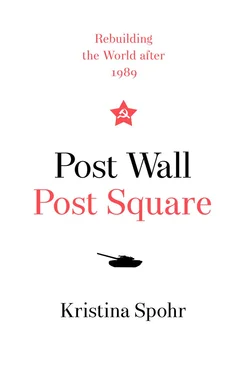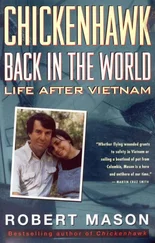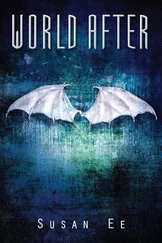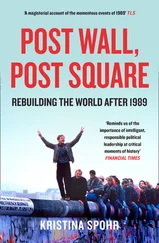In Hungary – unlike Poland where the political situation was rather precarious in the wake of the elections – the question was not whether reform would proceed but how fast and on whose terms. Currently the reform communists were driving the transformation, and they did so with confidence. Internationally Hungary had more room for manoeuvre than Poland, a strategically more pivotal country for the Soviet Union. And Budapest also knew that it benefited from following in Warsaw’s slipstream. Poland had clearly managed to get away with its reform course by staying within the Warsaw Pact, and the Hungarian reformers also saw this as the best path – especially after Gorbachev had held firm to his non-interventionist position in the Bucharest summit. (Leaving the Warsaw Pact had been the step too far by Hungary in 1956.)
Understanding the new rules of the game, Hungarians were also willing to test the limits of the possible. In fact, they had done so already with the dismantling of the barbed wire. As Imre Pozsgay – effectively Hungary’s deputy prime minister under Németh – explained to Bush, there were only two situations that might attract Soviet intervention: ‘the emergence of civil war’ or ‘a Hungarian declaration of neutrality’. The former he deemed unlikely: he was sure Hungary would undergo a ‘peaceful’ transformation. And the latter was simply ‘not possible’ for Hungary: as in Poland’s case, Hungary’s Warsaw Pact membership was non-negotiable to avoid provoking the Kremlin. Bush entirely agreed that Hungarians should not have to choose between East and West. What was important, he declared, was ‘for Soviet reforms to go forward’ while the United States did not ‘exacerbate Gorbachev’s situation or make the Hungarian course more difficult’. [77]
Bush found the reformers’ buzz and energy infectious. Quite contrary to a Poland that had seemed drab, subdued and worried about its new political pluralism, Hungary, opening rapidly towards the West, seemed really full of vitality. And Bush conveyed this in his speech at Karl Marx University on the afternoon of 12 July. ‘I see people in motion,’ he said. ‘I see colour, creativity, experimentation. The very atmosphere of Budapest is electric, alive with optimism.’ Bush wanted his words to act as an accelerator of the process of change ahead of the multiparty elections, so the country would not get stuck in half-measures. ‘The United States will offer assistance not to prop up the status quo but to propel reform,’ he declared, before reminding his audience that here, as in Poland and across the bloc, simple solutions did not exist: ‘There are remnants of the Stalinist economy – huge, inefficient industrial plants and a bewildering price system that is hard for anyone to understand, and the massive subsidies that cloud economic decisions.’ But, he added, ‘the Hungarian government is increasingly leaving the business of running the shops to the shopkeepers, the farms to the farmers. And the creative drive of the people, once unleashed, will create momentum of its own. And this will … give each of you control over your own destiny – a Hungarian destiny.’ [78]
In spite of this passionate rhetoric, as in Warsaw the president offered relatively meagre economic aid: $25 million for a private-enterprise fund; $5 million for a regional environmental centre; the promise of ‘most favoured nation’ status as soon as Hungary liberalised its emigration laws. He also made much about sending a delegation of Peace Corps volunteers to teach Hungarians English. [79]
His audience listened quietly but intently throughout the address. The most emotional moment was Bush’s comments on ‘the ugly symbol of Europe’s division and Hungary’s isolation’ – the barbed-wire fences that, he said, were being ‘rolled and stacked into bales’. Bush declared grandly: ‘For the first time, the Iron Curtain has begun to part … And Hungary, your great country, is leading the way.’ What’s more, with the Soviet Union withdrawing troops, he promised, ‘I am determined that we will work together to move beyond containment, beyond the Cold War.’ He ended ringingly with the invocation: ‘Let us have history write of us that we were the generation that made Europe whole and free.’ It won him a standing ovation. [80]
*
On Thursday 13 July, as Bush flew from Budapest to Paris for the G7 summit, he and Scowcroft reflected on the ‘new Europe being born’. During the flight the president also shared his impressions with members of the press corps, huddled around him on Air Force One. He said he had come away with ‘this real acute sense’ of the change that was taking place in Eastern Europe – a change he described as ‘absolutely amazing’, ‘vibrant’ and ‘vital’. He declared his determination to ‘play a constructive role’ in that process of change. The meetings, especially with the Hungarian leaders, had been ‘very good, very frank’. Warming up, Bush added, ‘I mean it was with emotion, and it wasn’t your traditional “I’ll read my cards, and you read your cards” kind of diplomacy.’ There had been ‘an intensity to it, a fervour to it’ that, he said, ‘moved me very much’. [81]
The president had no idea what lay ahead and so he remained cautious, but he was certainly encouraged by what he had seen. ‘I am firmly convinced that this wave of freedom, if you will, is the wave of the future,’ said Bush buoyantly. To some, it seemed that he was too cautious and overly sympathetic to the communist old guard. Yet others, including his deputy national security adviser Robert Gates, argued that the president was playing a more complex game. While preaching democratic freedoms and national independence to the crowds, he talked the language of pragmatism and conciliation to the old-guard leaders – in a deliberate attempt to ‘grease their path out of power’. [82]
Certainly, the challenge faced by his administration was to encourage reform in Eastern Europe without going so far and fast as to provoke turmoil and then a backlash. A fraught economic transition could easily result in inflation, unemployment and food shortages – all of which would force reform-oriented leaders to reverse course. Above all, Bush wanted to be sure to avoid triggering a Soviet reaction – possibly a crackdown in the style of 1953, 1956 and 1968. The key to successful change in the Soviet bloc was Soviet acquiescence, and Bush was keen to make it easy for Gorbachev to provide this. ‘We’re not there to poke a stick in the eye of Mr Gorbachev,’ he told the reporters. ‘Just the opposite – to encourage the very kind of reforms that he is championing and more reforms.’ [83]
Fresh from witnessing revolutionary change, Bush arrived in a city obsessed with commemorating revolution. 14 July 1989 would mark the bicentenary of the fall of the Bastille, the starting point of France’s quarter-century roller coaster of demotic politics and imperial autocracy. French president François Mitterrand was determined to impress his international guests with an extravagant celebration of French grandeur – and his own quasi-regal position. Yet, given the dramatic upheavals in Eastern Europe, France’s historical pageant had particular resonance in July 1989.
As soon as Bush arrived, he was whisked off to the Place du Trocadéro opposite the Eiffel Tower. He sat with the six other leaders of the major industrialised nations, together with over twenty leaders from developing countries in Africa, Asia and the Americas, for a ceremony to commemorate the 1789 Declaration of the Rights of Man. Actors read excerpts from the declaration and quotations from the revolutionary leaders, wreaths were laid at a stone inscription of the document and 500 doves were released into the blue Paris sky. Mitterrand’s intent was clear: France’s pioneering revolution was to be remembered not for the blood in the gutters but for its enduring values: liberté , fraternité , égalité . Then followed an evening at the brand-new, gleaming mammoth Opera House in the Place de la Bastille, on the site of the once-dreaded royal prison. On this occasion too Mitterrand’s special twenty guests were present, together with the leaders of the G7 – as they were for the Bastille Day Parade the next morning, when the French president put on a massive display of France’s ‘world class’ military prowess down the Champs-Elysées. Nobody could mistake the implicit message: the Fifth Republic was still a power with global reach. Watching 300 tanks, 5,000 troops and a mobile nuclear missile unit go by along Paris’s grand boulevard, Scowcroft couldn’t help being reminded of ‘a Soviet May Day parade’. [84]
Читать дальше












